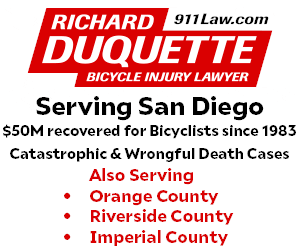Cycling can offer freedom and adrenaline in equal measure, but an unfortunate downside is the risk of accidents. It’s crucial to understand what to do after such an event, which can be a distressing and confusing time. This guide aims to arm cyclists with crucial knowledge to help them through the aftermath of a cycling accident. So, let’s dive into the legal rights and responsibilities after a cycling accident. It’s important to note that laws and regulations may vary by country or state, so it’s essential to consult with a legal professional familiar with the specific location.
Understanding the Immediate and Long-Term Impacts
When the unexpected happens, the chaos of the moment can blur the line between what’s immediate and what comes after. The immediate impact of a cycling accident can be devastating, with injuries ranging from minor scrapes to severe trauma. However, it’s often the long-term effects that are the most challenging. These may include mounting medical bills, uncertainty around income for time off work, and even psychological trauma that could last for years.
Navigating the Scene of the Accident
What you do in the first moments at the scene of the accident can significantly affect the next steps. Start by ensuring all parties involved receive adequate medical attention. Then, gather as much information as possible, including the names, addresses, and insurance details of the other parties. Take photos of the scene and contact details of witnesses. Lastly, file a report with local authorities to have a record of the incident. Because of the potential for shock and confusion, it’s essential to remain calm and collected.
The Importance of Proper Documentation
Keep a file with all the information related to the accident. This should include medical reports, repair costs for your bike, and any correspondence with legal or insurance professionals. This documentation will be crucial in any potential legal or insurance processing. While it may seem tedious, proper documentation can help ensure that you receive the compensation and support you deserve. Even if it’s not needed, having all the information in one place can provide peace of mind.
Approaching Insurance and Legal Matters
After the dust settles, the process of dealing with insurance companies and potential legal claims begins. It’s important to notify your own insurance company immediately. Consult a legal professional who specializes in personal injury or cycling accidents to understand your rights and the legal process for potentially seeking compensation from the at-fault party. Moreover, your accident attorney should help with your legal case and any potential insurance claims. Not only can this provide peace of mind, but it can also ensure that you receive the compensation you deserve.
Physical and Emotional Recovery
Recovery might seem overwhelming, but taking it step by step can help. Seek out medical professionals who can guide you through physical rehabilitation, and give yourself the time and space to heal emotionally. Emotional recovery is just as important as physical recovery—consider speaking with a therapist to process the trauma. Also, consider joining a support group for cyclists who have experienced accidents to connect with others who understand what you’re going through.
Returning to the Saddle
Getting back on the bike after an accident can be one of the most challenging aspects of recovery. Start by making small trips, perhaps with a companion. Revisit cycling safety measures and advocate for safe cycling in your community. It’s also important to know your rights as a cyclist, which may vary depending on your location. Since laws and regulations differ from state to state, it’s crucial to research and understand your rights before hitting the road again.
Seek Support and Community
Reaching out to support groups and the cycling community can be a powerful way to not only get through the aftermath but also to advocate for safer cycling practices. The support and shared experiences of others can be incredibly reassuring. Now, more than ever is the time to lean on your community and stand up for the rights of cyclists everywhere. Together, we can make a difference and raise awareness for safer cycling.
To sum it up, cycling accidents, while unfortunate, are not the end of the road. Being prepared with knowledge and understanding your rights can make all the difference in navigating the aftermath. Seek support, take time to recover physically and emotionally, and don’t be afraid to seek proper legal guidance. After all, as cyclists, we have the right to enjoy our passion safely and without fear. Stay informed, stay safe, and keep pedaling forward. Thanks for reading and good luck!
No products found.

















